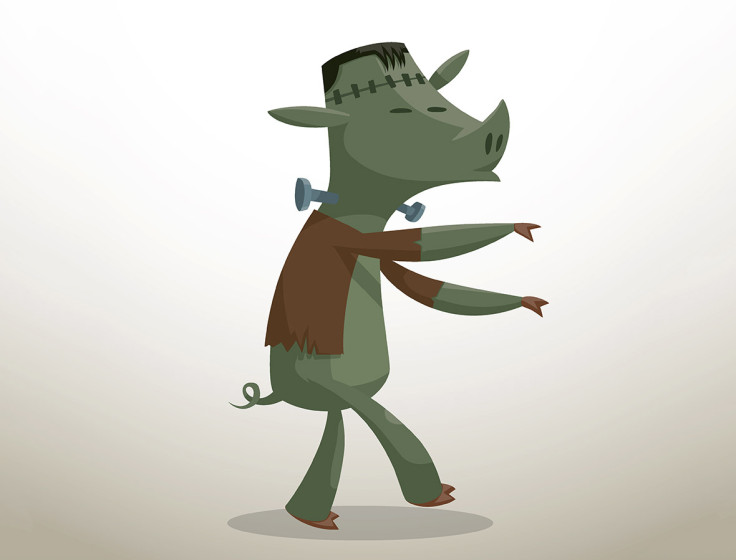Growing human organs in animals is cruel Frankenscience

It sounds like the storyline for a bad sci-fi film: experimenters trying to grow a human pancreas inside a pig. Except it's not fiction – scientists in California announced this week that they are doing just that by injecting human stem cells into pig embryos to produce hybrid human-pig embryos, or chimeras.
And while there is a need to address the shortage of organs available for transplant, creating human-animal chimeras is certainly not the solution and would be bad for people and even worse for animals.
To produce animals containing human material, female animals are imprisoned in laboratories and undergo invasive procedures to harvest their eggs and implant embryos. It's unconscionable to treat animals as disposable incubators for what appears to be curiosity-driven research.
Animals are not test tubes – they are individuals with emotions and the capacity to feel pain and to suffer. Experimenting on them is not just cruel – it's crude and inaccurate science that could have many unintended consequences, including severe health problems that scientists can neither anticipate nor control.
This 2015 study found all of about 90 HIV vaccines that succeeded in animals failed in humans. Although at least two dozen diabetes cures have been demonstrated in animal experiments, all have failed in human clinical trials.
To understand more about human development and human diseases, the world's most forward-thinking scientists are developing and using methods that are actually relevant to human health. These modern methods include sophisticated tests using human cells and tissues as well as innovative biotechnology such as in vitro tissue engineering, which can replicate human physiology more accurately than experiments on animals do.
In a recent episode of BBC's Panorama on the subject of chimeras, stem-cell expert Robin Lovell-Badge said: "What we don't know, and what they need to look at, is whether the human cells can also contribute substantially to other tissue, and particularly they are worried about the brain."
If you are not alarmed by this, you should be. It means that human stem cells injected into pigs could potentially migrate to the pig's brain.
Pablo Ross, reproductive biologist who is leading the research told the BBC that this is unlikely but it's why the research will proceed with caution: "We think there is very low potential for a human brain to grow, but this is something we will be investigating."
We must never allow the creation of such an amoral minefield.
Finding organs for people in desperate need of them is a laudable goal, and we can – and should – do this by encouraging more people to register to be organ donors, not by pouring research money into monstrous "Frankenscience". That money would be infinitely better invested in humane, cutting-edge science that could minimise the need for organ transplants.
© Copyright IBTimes 2025. All rights reserved.






















